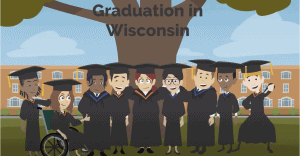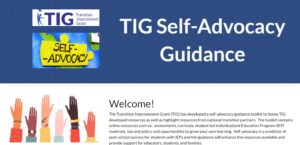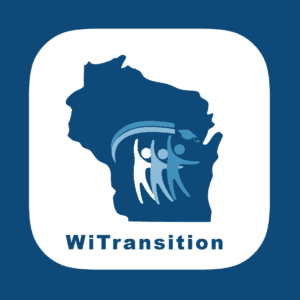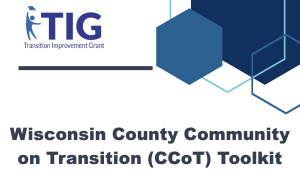Please note TIG will be updating the Self-Advocacy Suite.
Indian Mound Middle School
Bringing district vision in focus
The McFarland School District utilizes the PBIS Implementation Blueprint for their district-wide behavior implementation.
The McFarland district-level leadership team meets monthly, led by Indian Mound Middle School principal, Aaron Tarnutzer. The team’s tight, 30-minute standing agenda – looking strategically at assessments, reviewing data, sharing successes, problem-solving challenges, and providing updates – ensures that team members know what to expect at meetings. All team members believe in the importance of establishing a strong universal (tier 1) system of supports before adding additional levels. This vision helps individual school teams to focus on fidelity of practices that impact all learners.
“What has helped with our PBIS implementation is that we all believe in our implementation efforts. We’ve come together to create this and we share ownership,” emphasized Aaron Tarnutzer.
Tier 3 readiness creates a few aha moments
The McFarland School District had a lot of success with their PBIS implementation at schools serving students in grades kindergarten through eighth grade. They were implementing tier 1 (universal) and tier 2 (selected) supports, and believed they were ready to level up and add tier 3 (intensive) supports.
During initial tier 3 readiness conversations with their Wisconsin RtI Center regional technical assistance coordinator (TAC), the school leadership team realized they needed to revisit their tier 2 implementation with specific attention on capacity building. Through this readiness process, they learned quickly that adding tier 3 supports would require capacity beyond their current scope.
For these implementing schools to add additional staff to support tier 3, the PBIS Leadership team (which included district leadership members) worked collaboratively with the district administrative council to find a solution. Mr. Tarnutzer and the school-level PBIS leadership team knew working together would help facilitate discussions and decisions about capacity building, policy, and funding.
Strengthening tier 2 supports was a positive next step
As the district-level leadership team was orienting new colleagues and adapting to changes, the school-level leadership teams at tier 1 and tier 2 fidelity had time to revisit and refocus their practices. With the support of their regional TAC, the teams slowed down and gave themselves permission to do nothing new; instead, they focused on examining current practices. Mr. Tarnutzer shared, “By having unique district-level voices at the table, we were able to slow down and really look at our data at the lower tiers.”
Staff responded positively to the team’s decision to concentrate on improving existing tier 1 and 2 practices. Students also responded well to the interventions and focus on inclusion.
District voice brings vision, perspective, and capacity
Lessons learned at the school level about adding tier 3 supports were brought to the district-level team. In turn, the team recognized the need for additional capacity through a larger systems-level lens. This district-wide perspective paved the way for the creation of two new district-wide social worker positions, one for grades K-5 and one for grades 6-12. Both social worker job descriptions made specific mention to PBIS to help with tier 3 supports.
District implementation teams like McFarland gather data to gauge the extent to which practices and key system features are in place and used as intended district-wide. By measuring implementation data, districts examine connections between adult behavior and learner outcomes across their district. Assessment data gives districts the tools needed to discover how to grow and improve. The school-level teams helped build capacity for the entire school district.
What has helped with our PBIS implementation is that we all believe in our implementation efforts. We’ve come together to create this and we share ownership. Aaron Tarnutzer
principal and district-level leadership team

Notifications




 TIG Self-Advocacy Guidance Google Site
TIG Self-Advocacy Guidance Google Site 
 Wisconsin County Community on Transition (CCoT) Toolkit
Wisconsin County Community on Transition (CCoT) Toolkit